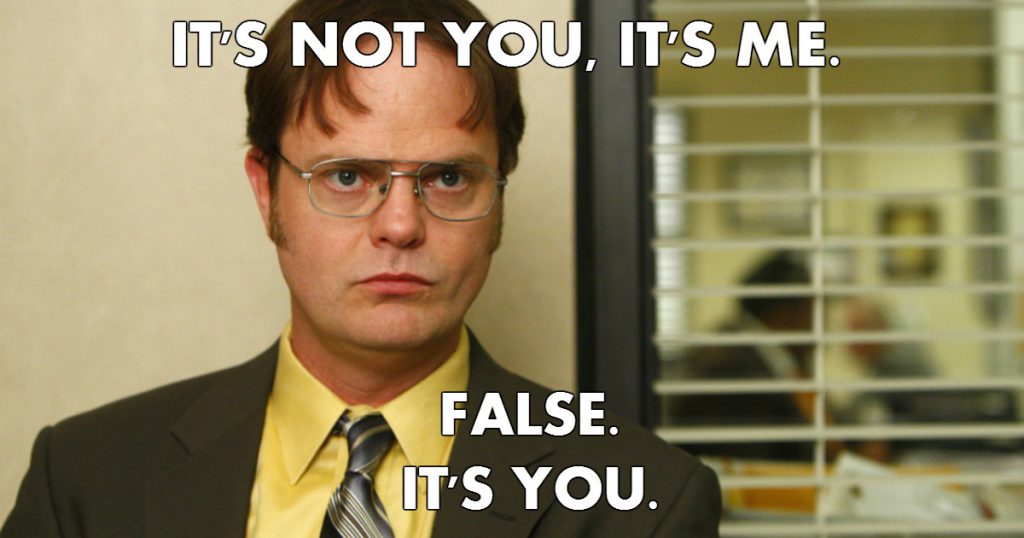We place a lot of significance on relationships these days, honestly because it is getting harder to sustain one.
We try our best to bolster their foundations so that it can overcome any challenges. But sometimes it’s not about the obstacles but more of the relationship dynamics between the parties involved.
And when a party feels like they are not being treated right, it can evolve into a kind of toxic relationship that affects both their daily lives and emotional well-being.
The problem of toxic relationships are not just isolated to familial or romantic, it can also rear its ugly head in the workplace.
1. Communication Breakdown

According to Jessica Rusin, “each day, at any startup, decisions that will have a direct and immediate effect on the company have to be made by those in a leadership role“. People in startups know how demanding their jobs can be, being both time-consuming and stressful due to the intense market competition.
And in such an intense and fast-paced workplace, communication breakdowns are not uncommon. Especially when deadlines are not communicated properly, it can result in difficult blowbacks and internal dissent.
Stereotypical views also affect communication, resulting in problems and affected productivity between the person doing the judging and the person being judged.
Always keep an open mind, and be understanding when speaking to others and addressing their concerns. Be clear on your expectations of yourself and of others so that everyone will be able to understand what the priorities are.
2. Passive-Aggressive Behaviour
Passive-aggressive behaviour is often displayed when an individual feels threatened, and can manifest as procrastination, a bad attitude, and even deliberate failure at a task.
Sometimes aggressors might even manipulate “others into doing their work“.
Such behaviour can be due to various reasons, such as poor communication of expectations and non-work related reasons that are affecting work productivity.
If you’re upset about someone’s passive aggressive behaviour, don’t indulge in thoughts of revenge. Instead, try to address the situation in a tactful manner that does not rile up the aggressor even more.
And if you are the aggressor, remember that being passive aggressive will not lead to a positive change in the workplace. In fact, entrepreneur and startup advisor Julian Shapiro sums it really well in this next statement:
“The next time you catch yourself being passive aggressive as a means to broadcast your dislike of a situation, remember that the only change this leads to is people liking you less.”
3. Inadequate Support

Inadequate support often leads to employee burnout, and is a prevailing reason as to why individuals aren’t able to sustain for long at their workplace. This stress may arise when one feels that they have been assigned a task they are not capable of, and that no one is around, or willing, to guide them.
Strong team work and support is crucial to growing a team that grows together. And especially in a startup where employees often have to juggle roles, lifting each other up along the way become even more vital.
According to Greg Mittman of MyRepublic, company meetings involve people pounding their fists on the table and exclaiming “this is our company and we are going to be bold, we are going to get it right, damn it”.
The feeling of owning what they do helps the MyRepublic team function as a team and as a family that supports each other up.
4. Control Issues

Fuhu‘s co-founder Robb Fujioka was described as being dictatorial and often controlling in what the employees did, including controlling what they had on the desks. Even Fujioka reflected that “there was also a bankruptcy of the corporate culture.”
Controlling behaviour is especially bad in an workplace with a micromanaging boss, often resulting in an unpleasant work environment – this is especially so in a startup where founders are banking all of their passion and effort to make it work, and such problems might become even more apparent.
The behaviour of your micromanaging boss has got nothing to do with you as an employee, but rather them as a person.
If you’re uncomfortable with the way you’re being treated, don’t keep it to yourself and let the internal dissent accumulate. The ones suffering will be you and the colleagues who might otherwise have benefitted from your stepping up.
5. Non-Constructive Criticism
Constructive criticism can be an outlet for personal growth, but too much of it can be toxic for anyone.
It not only demotivates the receiver but also causes them to underestimate themselves. They might be under too much stress to improve themselves, or even produce half-hearted work as they figure that they would be criticised again either way.
Startup founders are often bosses for the first time themselves, and sometimes, they might not be making the best decisions either. Let them know that their actions are affecting you, and if you’re worried about retaliation, don’t.
You would be surprised as to how many founders actually value employee honesty.

CEO and founder of international startup accelerator Unreasonable Institutes Teju Ravilochan once remarked that if founders wants a team with a voice, they need to “expect a lot of pushback […] It’s a hard thing to tell the truth. But people will respect you for it. They’ll trust you for it.”
Breaking The Stereotypes
Toxic relationship traits are not only present in our personal lives but also in our professional lives. We are often told to ‘suck it up’ otherwise we might get into trouble. However, you have to remember that making a habit of swallowing your complaints is not healthy either.
This is an era where dictatorship and unhealthy team dynamics will do squat for productivity. What’s toxic will only cause harm to us in the long run.
Considering that we spend so much time working, wouldn’t it be better if we could do it in a healthy environment instead?
Feature Image Credit: befunky.com










